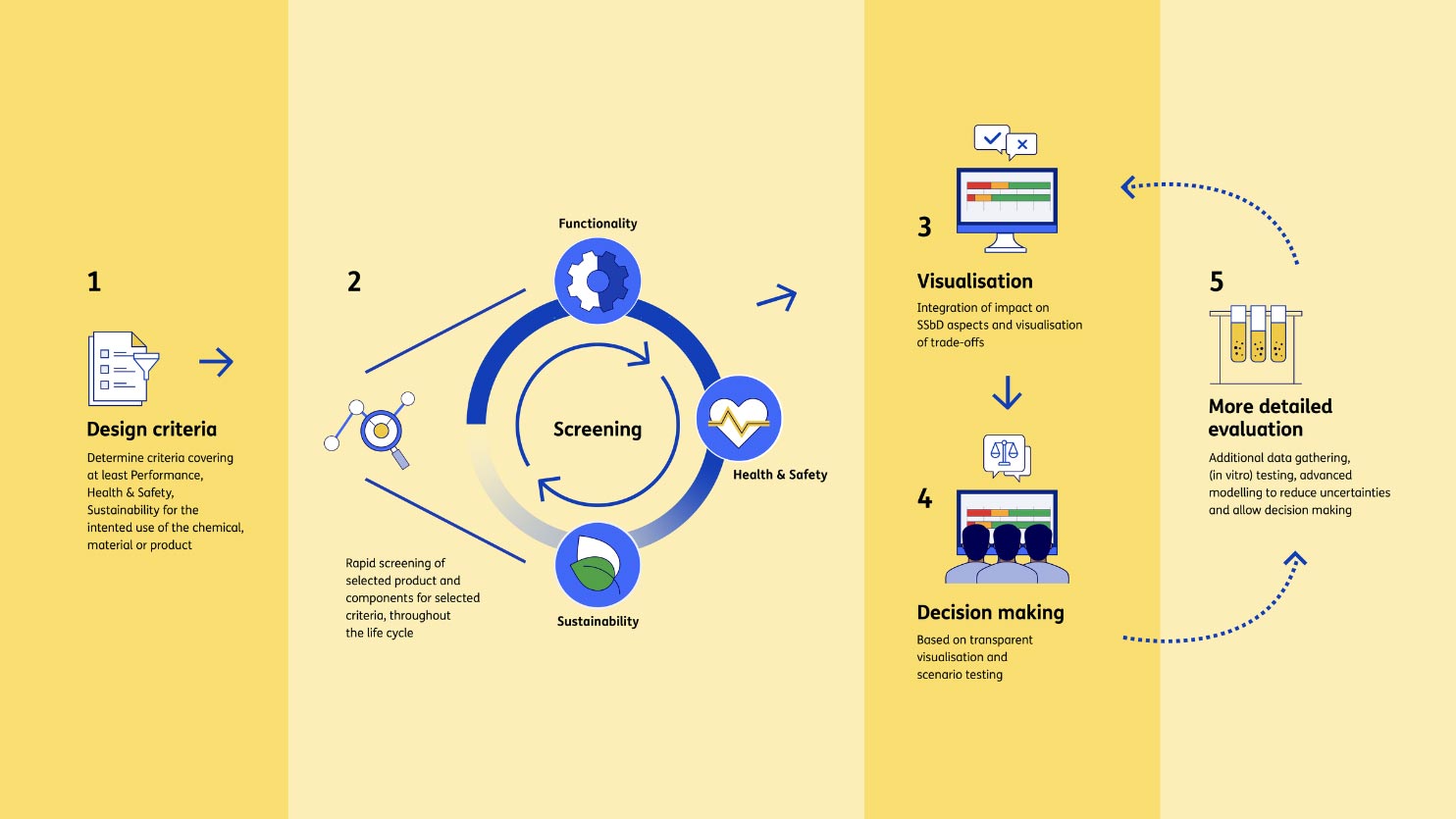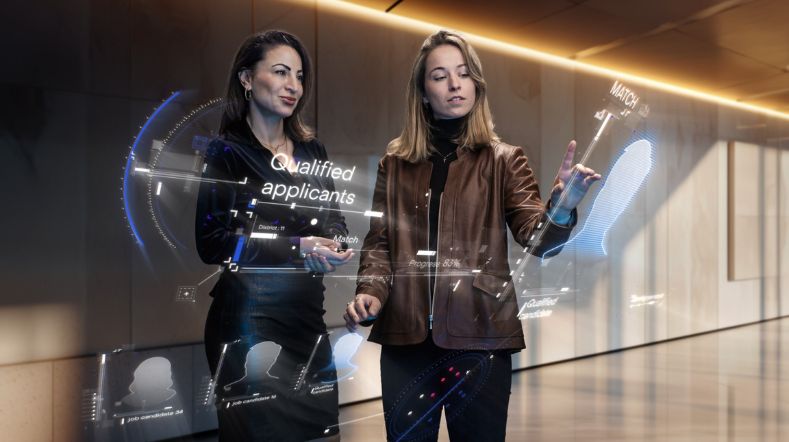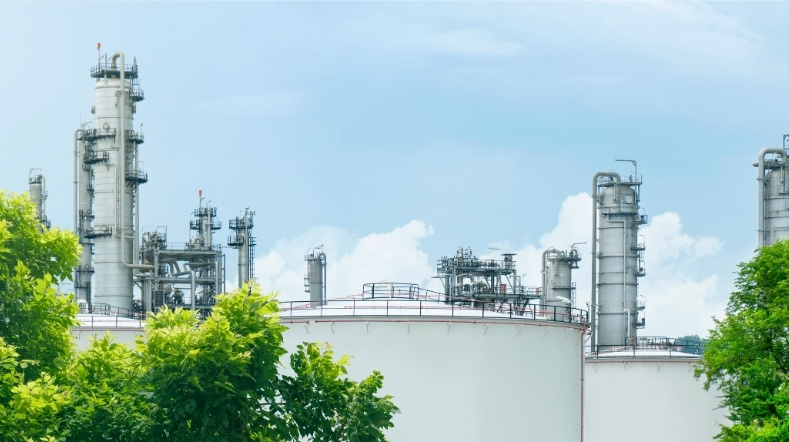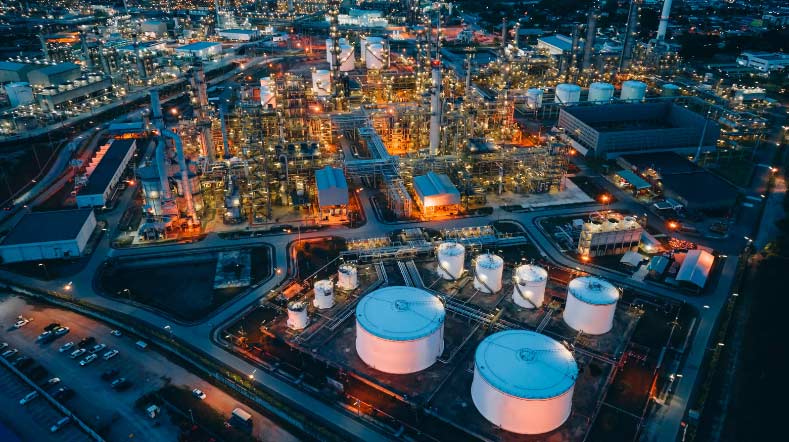
Towards safe and sustainable chemicals
New chemicals and materials innovate our society and boost the economy. The production, use and disposal of new products come with potential risks for our health and the environment. TNO is therefore actively developing a Safe & Sustainable by Design (SSbD) approach and Next-Generation Risk Assessment (NGRA) strategies. These can help to empower industries to effectively balance risks and benefits of products throughout all life cycle stages, thereby contributing to a healthier and more sustainable society.
(Upcoming) European regulations demand companies to increase transparency on the safety and sustainability of their products. To move towards a safer, healthier, and more sustainable future, the European Commission introduced the Chemicals Strategy for Sustainability, within the EU Green Deal.
This strategy aims to transition to a circular economy that is safe, climate-neutral, and sustainable. A pivotal element of this strategy is the adoption of chemicals and materials that adhere to the principles of Safe and Sustainable by Design (SSbD).
SSbD: pre-market approach to move forward
SSbD represents a paradigm shift where safety and sustainability considerations are integrated at the earliest stages of product development, alongside functionality and cost considerations. This proactive approach enables the identification of potential opportunities to enhance safety and sustainability early in the innovation process.
By doing so, companies have the flexibility to adapt their products, minimising adverse effects and mitigating the risk of market failure. SSbD presents an opportunity to proactively design innovative chemicals and materials that not only provide solutions to societal challenges, such as the energy transition, but also ensure no harm is caused to humans or the environment.
Decision support approach
TNO aims to assist companies in Safe Chemical Innovation by balancing risks and benefits early in product innovation as well as once a product is on the market. For the early innovation, we recognise that SSbD involves a delicate balancing act between substance functionality, safety, and sustainability, and advocate for integrated methodologies that provide support to industry to make such decisions.
TNO, in collaboration with manufacturing industries, innovators, investors, researchers and governments, is developing a Decision Support approach, which includes transparent visualisation of uncertainty and underlying tools to address data gaps for each of the SSbD dimensions. Companies can use the SSbD methodologies to evaluate design scenario’s and select the optimal design, balancing risks and benefits.

The Safe and Sustainable by Design approach can be used to support industry’s informed decisions based on health and safety, sustainability and performance impacts early in the innovation process and throughout the entire life cycle. This approach consists of five steps: defining design criteria, quick screening with the SSbD-decision support tool, visualisation, decision making and if needed more detailed evaluation of one or more SSbD aspects can be performed.
TNO develops within a big European project, HARMLESS, new and integrated tools to assess the safety of advanced materials during their entire life cycle and validates a user-friendly DSS in different case studies.
Risk assessment close to launch
At later stages of product innovation and after market launch thorough risk assessment is required throughout the full life cycle of chemicals via regulations such as REACH. This regulatory risk assessment process is time-consuming, resource-intensive, relies heavily on animal studies, and may lead to unexpected toxicity issues.
To accelerate hazard assessment of novel substances or substances with little data, TNO cooperates in the transition to Next-Generation Risk Assessment (NGRA), which relies less on animal studies, allowing for a human-centred, mechanistic-based risk assessment using New Approach Methodologies (NAMs), including computational tools and laboratory assays using human cells.
In addition, another benefit is that NGRA methods have potential to be employed at a much faster pace in particular at early stages of product innovation to complement the SSbD approach. TNO is involved in the Horizon 2020 project RISK-HUNT3R to help companies in their risk assessment of chemicals and materials close to market launch.
Substance Information System
TNO is actively developing computational tools based on cheminformatics, artificial intelligence and machine learning techniques to estimate toxicity. In addition, we are setting up an in vitro toxicity screening facility for both quick screening of chemicals in the context of SSbD and for in-depth hazard assessment for NGRA. This information will also help expanding TNO’s Substance Information System (SIS) to help replace substances of concern with safer alternatives and predict toxicity of (novel) substances.
Together with stakeholders
TNO possesses valuable multidisciplinary expertise in functionality, health, and sustainability. We believe in taking the initiative today, alongside all stakeholders, to create functional chemicals, materials, and products that cause minimal harm to human health and the environment.
We actively contribute to discussions with stakeholders to harmonise and standardise approaches to implement both SSbD and NGRA. Positioned independently between governments, knowledge institutes, and businesses, TNO is uniquely positioned and therefore works together with industry to support and help accelerate the transition in the chemical sector towards a healthier and more sustainable society.
We participate in multiple international collaborations and projects within different sectors. For example, Horizon 2020 project PeroCUBE investigates new perovskite materials for new commercial opportunities for lighting, sustainable energy and telecom industries.
Join us!
Are you curious about what we do in the field of Safe Chemical Innovation? Or do you, as a company, university or research institute, want to work with us to advance SSbD decision support and/or NGRA implementation and contribute to a healthier and sustainable society? Please contact us.
Get inspired
TNO Announces the launch of ObjectivEye


Prospective Life Cycle Assessments for future-proof product design


Knowledge advantage in SSbD offers opportunities for Dutch chemical companies


The future of chemicals is Safe and Sustainable by Design


SSbD presents significant opportunities for the Dutch chemical sector to maintain its leadership position




